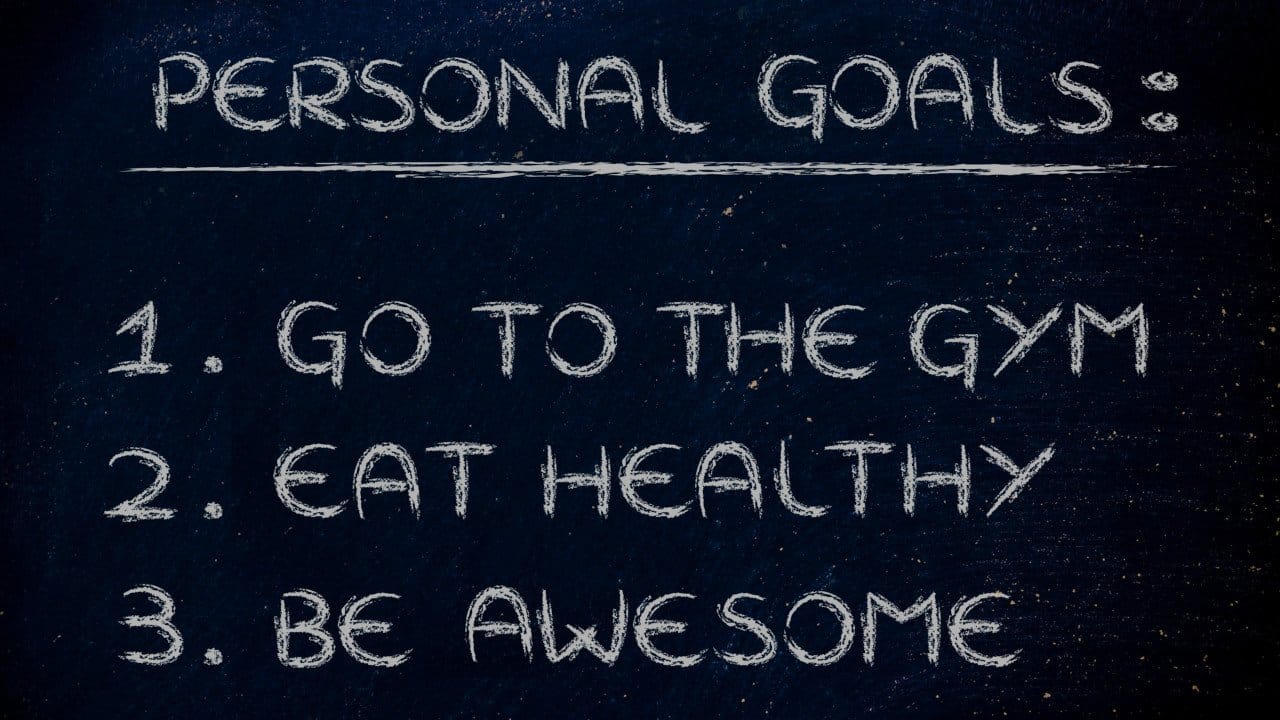How To Extend Your Fitness Goals Beyond January
Most of us begin each year full of good intentions. We make new year’s resolutions and hope to stick to them.
Most of us don’t, however.
In fact, more than three quarters of us give them up by the end of January. This becomes even more pronounced when looking into fitness, where people typically reimagine themselves as buff looking gym types, before falling short of their unrealistic ideal and throwing the towel in.
I’m not being smug when I say that I always make resolutions and that I always stick to them. I sit down with my wife in the closing days of each year, with a pen and a notebook, and we write down what we want to achieve the following year… or, rather, what we want the shape of the next year to be, how we want it to look and who we want to be during the year. It’s something my wife has always done. Since she got me into it, I’ve not looked back.
Many of my goals are fitness related. Of course, as a personal trainer, you might think it’s easy enough for me to make fitness goals for new year – I always have one or two fitness goals on the go anyway. Well, yes it is easy, but not naturally so. It’s only easy because, over the years, I have learned how to make realistic goals, what they should look like, and how to stick to them.
It’s simpler than you might imagine, which is what I want to talk about here, today. I’ve gathered together a few tips from my own experience which should make your fitness resolutions that much easier to maintain beyond January. In fact, get them right, and you should find maintaining a fit, active lifestyle far easier for the rest of your life.
My three top tips for maintaining your fitness goals beyond January
1. Don’t Rely On Enthusiasm Or Willpower – Change Your Habits
I wasn’t originally going to number these points. Nor was I going to put them in any particular order. The latter two are unordered. However, if you take nothing else from this list, it should be this – change your habits rather than relying on enthusiasm or willpower. This is number one, the most important thing, the alpha and, probably, the omega.

Most people make resolutions in a fit of guilt or enthusiasm. They know they ‘should’ get into shape, they may be keen to, even excited for the journey. They jump in headfirst. Then, after a few weeks, this enthusiasm or guilt ebbs. It gives way to the myriad other pressures life throws at us.
It cannot be sustained. I’m not enthusiastic about fitness most of the time. I go to the gym because it fits my programme and because I’m in the habit of doing so. I push myself hard because I’ve learned to, not because I feel I absolutely have to.
Focus on changing your habits and behaviour, rather than getting geed up about the gym.
Goals will help, especially specific ones. Programmes will help. If you simply commit to going to the gym ‘more often’, you’ll find your fitness career petering out early. If you get onto a programme with a specific timetable and goal, you will be far likelier to succeed.
For example, commit to being able to deadlift your bodyweight in three months’ time, or being able to run a 10km race come July, or losing 1 kg per week for three months. Put a programme together – if in doubt, get a personal trainer to make one for you, or download one free online (there are hundreds, if not thousands, to choose from, covering every goal going – a simple Google search will put you on the right track).
This programme will likely have you training 3-4 times per week. Don’t give each session your all. Focus on simply turning up. It will become habit soon enough – within a few weeks, most likely. It will also give you a direction of travel, a path to tread even when you’re feeling unenthused.
I once read an interview with athlete and actor Terry Crews. In it, he suggested going to the gym every day for a short while. Don’t work out on your off days, but still turn up. Sit in the café or the lobby, read a magazine for 20 minutes, then go home. I don’t know that I’d suggest going to this extreme, but it ably demonstrates a point – getting into the habit of simply turning up is the best thing you can learn.
2. Take Inspiration From Your Own Life

It can be common enough to hear people talking about what they will change about themselves come the new year. They focus on what is ‘wrong’ with them. They are too fat, so they will lose weight. They are unfit, so they will work on their endurance and cardiovascular capability.
This can be useful. If you need to lose weight for medical reasons, consult your doctor and come up with an actionable plan. However, we also need to look at enhancing what we already do right.
For example, if you like an evening stroll around the local park, don’t suddenly decide, arbitrarily, that you want to be able to run a marathon. If you want to get fitter, simply pick up the pace or go for a longer walk. Try using a pedometer and set yourself a daily target of at least 10,000 steps.
If you don’t do anything – if you live a completely sedentary life – think about the chances you have in your day to change this. You travel into work already. Why not spend some of that time walking? Or what if you didn’t take the elevator at work.
Don’t jump straight into a rigid, strict diet, either. Think about the healthy foods you like. Bring these to the foreground, eating them more regularly, whilst bringing the unhealthy ones to the background as an occasional treat. Simple changes like this can make all the difference.
Again, it’s about habits. Don’t go for a 360-degree life change. Simply pinpoint your healthy habits and put more focus into them. Pinpoint your unhealthy habits and try to diminish them.
3. Keep Track Of Things
Accountability is a big deal in fitness, especially when you’re first starting out.

If you can, reach out to a personal trainer. One of the many benefits of regularly seeing a personal trainer is that they can keep track of your progress and make sure that you remain committed.
However, most people cannot afford personal trainers. That’s fine. You can find accountability in other places. For instance, you can find a gym buddy with whom you train. You can be one another’s accountability.
Alternatively, you can keep track of your own progress. There are plenty of apps that can help with this, from pedometers to lift loggers to weight trackers. You can also use a simple pen and paper (my preferred method). Keep a diary. Write in your relevant biometrics each week – the markers that pertain to your goals. For instance, if you’re trying to lose weight, do a weekly weigh in and write it down. Also consider writing a thought diary after each workout – it will help you to keep a clear head and objectively observe what you’re doing.
Your fitness journey needn’t end on the first of February. It’s only just beginning, and it can be a long and fruitful path, if you lay the foundations right from the beginning. Take note of these tips. Talk to other people at your gym, those who have been consistent for years, and find out what keeps them coming back, what keeps them on track.
Learn from those around you and stick to it.





